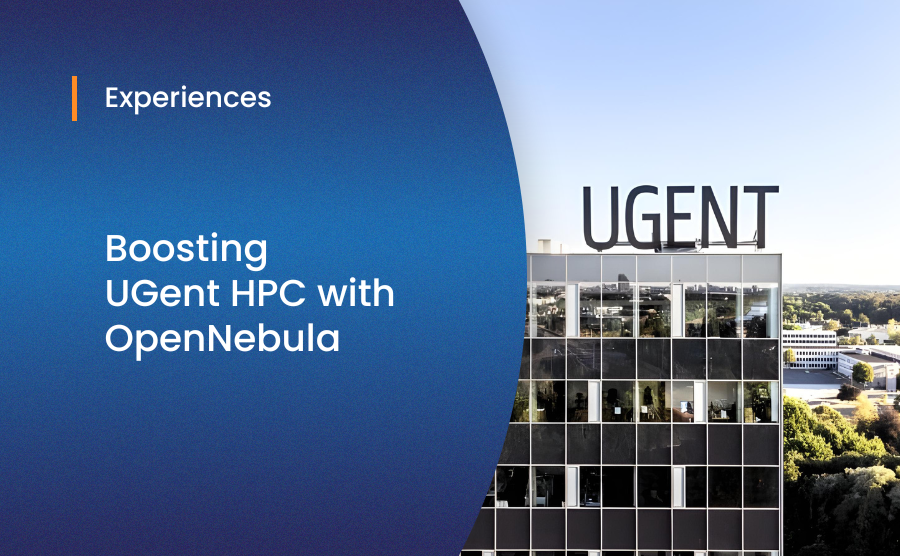A Collaborative HPC Initiative in Belgium
Ghent University (UGent) is the second largest university in Belgium, serving 50,000 students and 9,000 staff members. It collaborates with other Flemish universities through the Flemish Supercomputer Centrum (VSC), which includes the five universities and is managed by the Research Fund – Flanders (FWO).
The VSC combines expertise in scientific and technical computing, including high-performance computing (HPC), and operates infrastructure across four university datacenters. At UGent, the HPC department supports researchers, professors, and students by providing access to multiple supercomputers and clusters, available to both local and external users. Currently, UGent operates both Tier1 and Tier2 HPC systems, with the Tier1 supercomputer shared among universities.
The Challenge: Bridging the Gap in HPC
Historically, UGent lacked a cloud infrastructure for HPC. Recognizing the need for a robust solution, Álvaro Simón, HPC System Administrator at UGent, introduced OpenNebula, leveraging his prior experience with the platform. This strategic move transformed UGent’s HPC capabilities, enabling them to meet the increasing demands of users effectively.
Key Features: OpenNebula’s Advantages for HPC
OpenNebula has proven to be a game-changer for UGent, offering several notable benefits:
- Reduced manpower requirements: the platform is remarkably easy to maintain, use and upgrade, with Álvaro managing the system largely on his own.
- Stability and reliability: UGent has experienced minimal issues since adopting OpenNebula, ensuring uninterrupted service for users.
- Ease of migration: the ability to easily migrate services without disrupting user schedules has enhanced operational flexibility.
- Open source community: UGent’s involvement with OpenNebula as an open source platform enables them to actively contribute to its development, while the community’s responsiveness encourages a collaborative atmosphere.
Metrics and Outcomes of Cloud Integration
Utilizing OpenNebula in their HPC operations has yielded significant advantages for UGent:
- Power efficiency: by consolidating services on fewer hosts (more than 100 servers running as VMs in 20 hypervisors), UGent has optimized power consumption and reduced hardware costs by up to 80%.
- Flexibility: the cloud infrastructure enables seamless service migration, allowing for hardware upgrades without requiring downtime for users.
- Space optimization: with limited space in the data center, the consolidation of services helps maximize resource utilization.
In Tier1, UGent made modifications to the infrastructure to integrate OpenNebula, resulting in enhanced service delivery and improved user experience.
Future Plans: Enhancing Synergy and Monitoring with OpenNebula
Looking ahead, UGent is focused on integrating system administrators with the HPC group to foster better collaboration across teams. They are exploring the implementation of OpenNebula’s new Prometheus feature for monitoring, transitioning from outdated systems to a more cohesive approach. This initiative aims to streamline operations and improve overall efficiency.





0 Comments